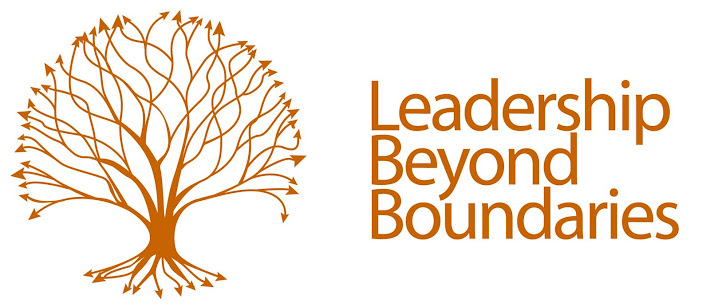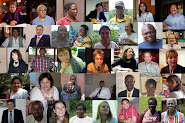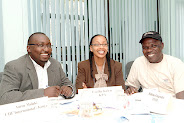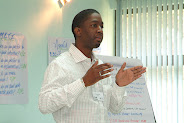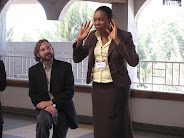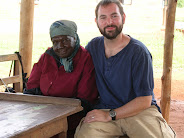
Over the course of two months, we visited a range of NGOs across India: urban and rural, large and small. They included educational institutions providing professional degrees, training facilities and independent trainers providing non-formal education, grant-making organizations, community development organizations, microfinance associations, self-help groups, and organization addressing public health. These conversations with more than 100 NGO representatives touched on key challenges for the sector and the need for leadership development. The following is some of what we heard.
A Time of Challenge and Opportunity
We heard that the 1 million NGOs had a significant role to play in India. The economic growth in India has created new opportunities for disadvantaged populations but also exposes them to the threat of greater exploitation and displacement.
Many NGOs were working to ensure that India’s poor were not further marginalized and were able to take advantage of the forces of growth and globalization. In many cases, organizations had begun to leverage the talents and power of rural populations and the poor to transform their situations. We heard that the poor should not be looked at as hapless recipients of aid but as people with skills, influence, land and other resources. The approaches adopted by NGOs were participatory and inclusive of the knowledge and creativity the poor had acquired. The efforts were geared to help unlock the economic potential and collective power of these populations and make them partners in development.
The organizations we visited had almost without exception developed effective models and aspired to scale their operations to serve more people and communities. The core challenges they faced were financial and human resources for sustaining growth.
NGO Capacity
Many NGOs are having difficulty attracting educated professionals, especially those willing to work in rural areas. Trained MSWs have lucrative opportunities working abroad and it is also becoming increasing difficult to retain talent in the face of fast growth in the corporate sector. BPOs, banks and other growing sectors are able to poach employees away with offers of much higher salaries and advancement opportunities.
NGOs have adopted a couple of strategies in this regard. Some institutions have begun hiring recent graduates and providing them a year-long training with the expectation that they would stay on. Another approach is recruiting talent from rural communities and providing training to enable them to work in the field. This strategy is effective in that rural recruits are familiar with local communities and are more likely to stay on the job. The limitation, however, is that these local recruits lack confidence (to interact with government officials and funders) and managerial skills.
We heard about a degree of tension within established NGOs between older employees and educated recruits. The lack of readiness to change by senior people in the organization is a source of frustration for increasingly impatient younger employees and in some cases the key reason for their departure.
A concern is that many NGOs had not substantially enhanced their ability to embed and share leadership within the organization. In some cases founders and senior leaders hold a tight grip over shaping the course of the organization.
One large NGO that we encountered had achieved a strong culture of inclusive leadership. We found their staff to extremely engaged, satisfied, and committed – “here there are bosses but no bossism” a staff person declared. This was the result of years of dedicated effort in building an inclusive culture through the development of staff throughout the organization.
Training and Development
Many NGOs recognize the need for enhancing technical skills in the area of management. In our encounters, the need for leadership development of NGO staff was not often a priority. Organizations were committed first to the constituents they served and seemed far less focused on the development of their staff. Learning occurred primarily on the job and most training was focused on job-related skills. Few organizations appear to focus much on “self actualization” for staff. This lack of personal development, stated one educator, was a factor in the high burnout rates and stagnation present in the sector. “People need rejuvenation” observed the president of a large NGO.
In some cases there was skepticism that leadership could be developed and needed to be available for staff at large. A foundation representative stated that there needs to be better validation of the value of leadership development at lower levels. Other institutions, however, voiced the perspective that leadership development had broad value based on the premise that one could enact leadership “without being in a position of authority.” The skills identified for training included: identity development, self-confidence, motivation, perspective development, articulation of thoughts and public speaking, risk taking, team building and relationship development, conflict management, and building consensus.
With regard to training there is also the expressed tension between being able to afford time for staff to attend programs (“only people who have no work can attend training”) and the realization that self study or online programs are not adequate for learning. One individual put it this way “you can’t learn leadership from a book; it is akin to reading a menu and feeling full.”
The existing training programs we encountered were usually delivered by independent trainers and used dialogue, role play, and group exercises to help individuals assess strengths and weaknesses, and build skills and abilities. These programs were often delivered at very low cost with basic amenities and residential options to make them affordable.
A number of educational and training institutions we visited were working to do more for NGO professionals. They are planning to ramp up new offerings to provide NGO staff with ongoing professional development. Even so, these institutions admitted that it was hard to scale their operations enough to address the vast need for training in adequate measure.
Collective Capacity
The NGOs we visited had established effective models for addressing social needs and had plans for expansion. Many of the organizations, however, saw the scope of need in India to far exceed their present reach of activities. This was related to the shortage of human resources – “we need a lot more qualified people in the field” – as well as their ability to address the vast challenges alone. In many cases organizations expansion plans were linked to forming alliances with other NGO, corporate, and governmental entities.
The need for collective effort was emphasized by several people with whom we spoke. We heard that there is a critical need to work constructively with governmental agencies, corporations, and funding bodies. Embedded in this was the recognition that these entities had differing agendas that were not always seen to be in the interest of the poor. Concern was expressed about corporate social responsibility being primarily about public relations than creating change. A founder of a rural NGO also voiced dissatisfaction that large NGOs had a tendency to become big bureaucracies that simply subcontracted work and did so with short attention spans – “you can’t subcontract vision or passion.”
We nevertheless heard expressed the need for NGOs to work together more effectively to align efforts, share learning and best practices, and consolidate their power. An older NGO mentioned that with maturity they were now less concerned that partnering with another NGO would enable the other to “steal their funding.”
Some educational institutions saw a role for them to play in enhancing NGO networks and the cross-sector sharing of knowledge.
Observations
There is clearly much pressure on the NGO sector to address significant challenges in India related to deep rooted poverty and rapid change. The commitment, achievements, and vision of the people at the NGOs we met were inspirational and provide much hope.
Our sense is that leadership development –understood as enhancing the ability of individuals and organization to work together to envision and enact change – has a significant role to play in helping NGOs achieve their objectives.
We observe the need to do more to train staff to enhance skills and help them deal creatively with the immense challenge and opportunity that they must tackle. Furthermore this investment in individual employee development and growth will help enhance retention and reduce stagnation and frustration. The response by educational and training institutions to address this need is promising and must be further extended and supported by funders. At the same time, there is need to demonstrate the effectiveness and value of these investments in leadership development for funders.
At a macro-level, it appears that a broadly recognized issue is working across sectors and boundaries in alliances and networks. There appears to be interest among corporations and NGOs to engage constructively, though the scope of these activities appears limited at present.
We see that higher education in India represents a key point at which a greater exposure to and engagement with the social sector can be established. This could serve the dual purpose of helping young people build soft skills, by taking on real challenges out of the classroom, as well helping spark interest among more individuals in choosing the NGO sector as their career path.
The Center for Creative Leadership is working to explore ways in which we can be a resource for leadership development for the NGO sector in India and beyond. As our work evolves, we look forward to reconnecting with NGOs in India to develop, test, and offer tangible approaches to address these needs.
